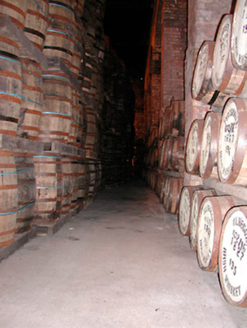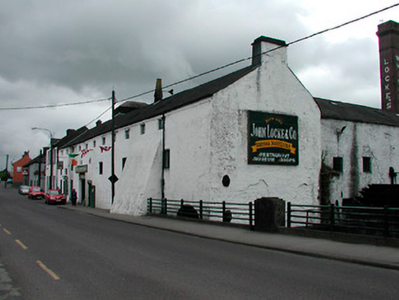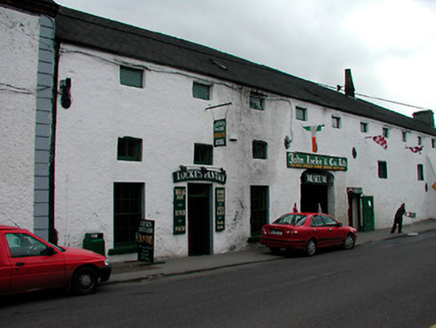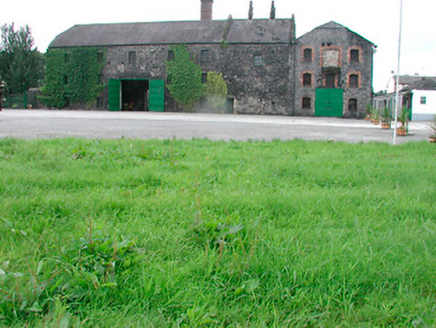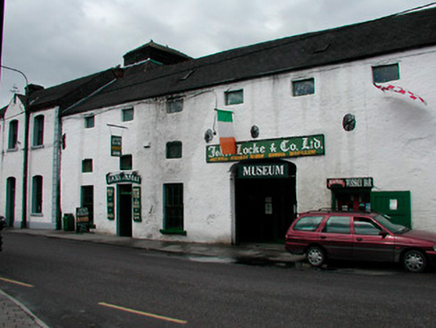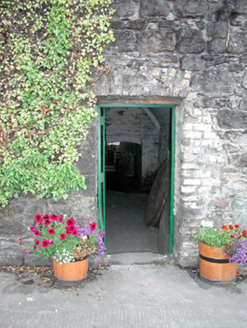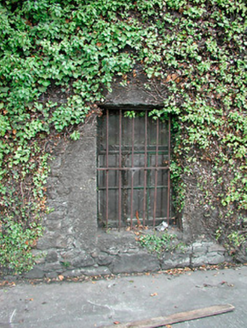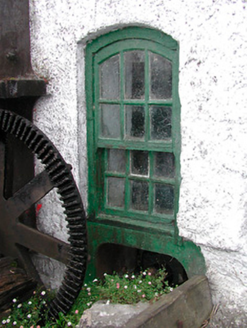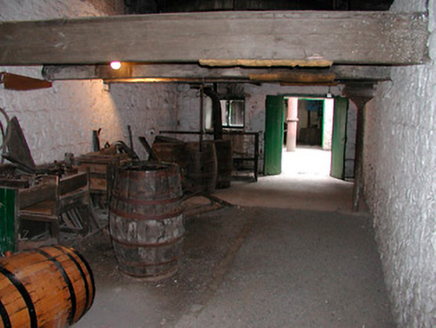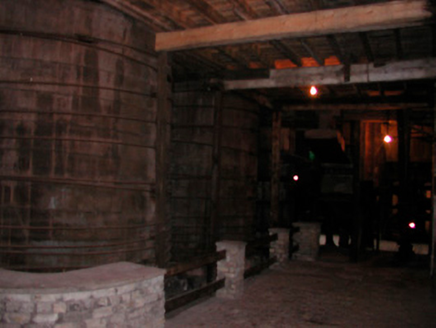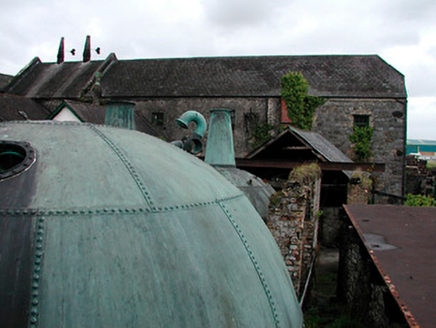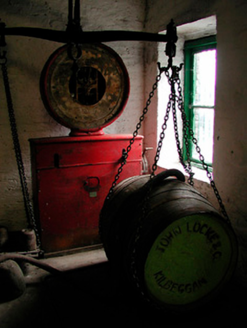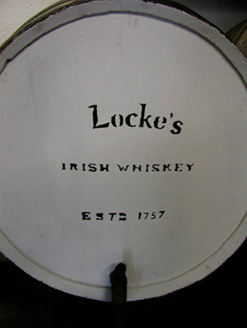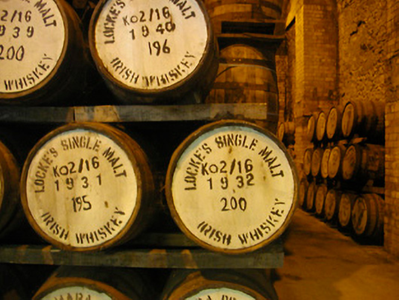Survey Data
Reg No
15321006
Rating
National
Categories of Special Interest
Architectural, Artistic, Historical, Technical
Previous Name
John Locke and Company
Original Use
Distillery
In Use As
Distillery
Date
1757 - 1930
Coordinates
233149, 235565
Date Recorded
17/08/2004
Date Updated
--/--/--
Description
Detached multi-bay three-storey distillery complex arranged around a central courtyard, built c.1757, renovated and extended on numerous occasions. Closed c.1957. Reopened, c.1984, as a heritage centre and working distillery museum. Pitched natural slate roof to main block with rendered chimneystacks, cast-iron rainwater goods and tall metal vent cowl. Roughcast rendered walls with square-headed openings with replacement timber sash windows to ground floor and timber casement windows above. Large projecting and tapered buttress to east end of south elevation (main). Integral segmental-headed carriage arch to centre now forms main entrance. Extensive collection of early machinery and fittings to interior, renovated waterwheel and mill race/sluice complex to east elevation. Road-fronted on west bank of River Brosna with an extensive collection of buildings, stores, a red brick chimneystack on rectangular plan to rear (north).
Appraisal
An important distillery complex and collection of industrial machinery that dominates the centre of Kilbeggan. It retains its early form, fabric and character. The survival of the early cast-iron, copper and timber machinery is of particular importance and represents one of the most intact collections of its type in Ireland. The steam engine to the interior was added to this complex in 1880 and was built by Thornbull, Jack and Grant of Glasgow, an important engineering firm of the day. This distillery was originally founded in 1757 and is, reputedly, the oldest licensed pot still distillery in the world. The complex, as exists today, is formed of a collection of buildings dating from the eighteenth century until c. 1930 and gives an interesting insight in the development of distillery/industrial technology during this period. This extensive complex existed under a number of earlier trading names before becoming Locke' Distillery in 1843. The Locke Family were from a Catholic background and were, reputedly, the first Catholic Family to own and run a distillery in Ireland during the nineteenth century. An earlier owner, John McManus, was a colonel in the United Irishmen during the 1798 rebellion and was executed in Mullingar as a result of his role in an attack on Kilbeggan during the rebellion. This distillery has played a central role in the development of Kilbeggan and many of the houses in the town centre were originally rented, and eventually purchased, from the various owners. This complex is one of the most important industrial archaeology sites in Ireland and is now the major tourist attraction in south Westmeath.
